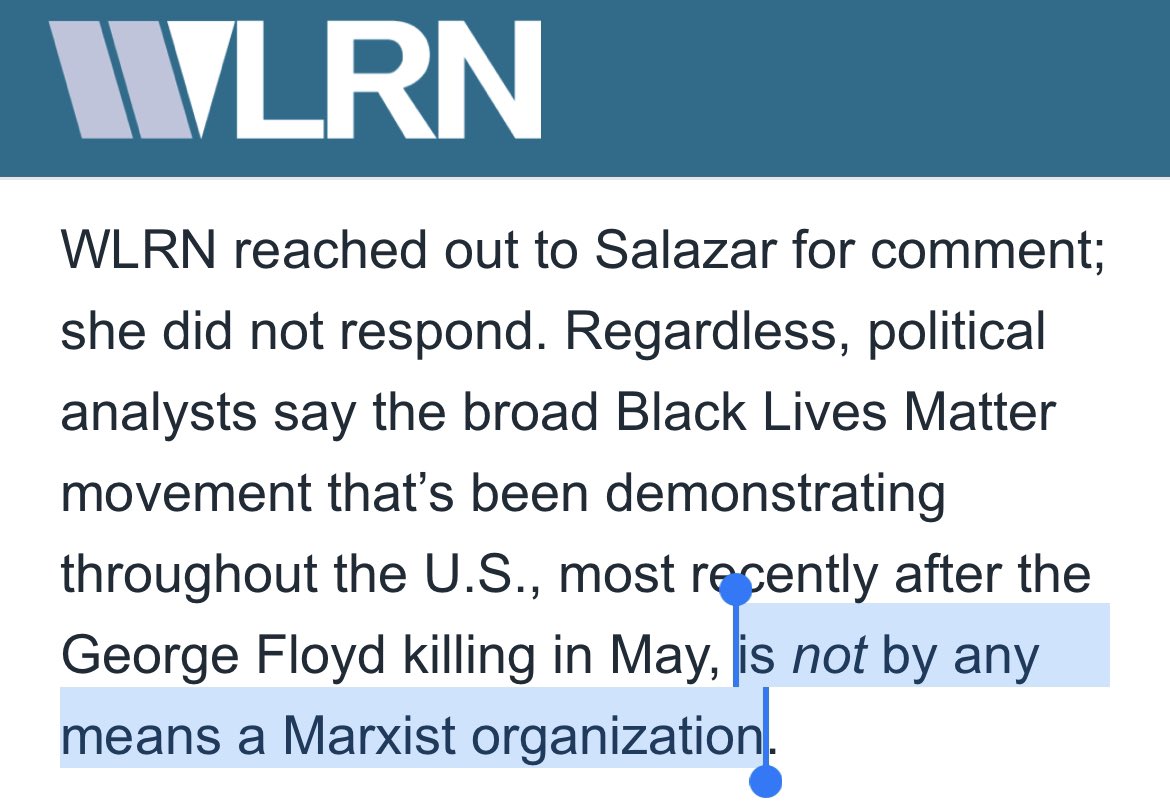
It’s worth noting that a lot of Cuban Americans were smeared as “racists” and “conspiracy theorists” by members of the media for correctly noting last year that BLM the org is a Marxist group. They will never receive an apology.
https://twitter.com/sabrod123/status/1415496641658896391
Here’s an article by @wlrn that labeled @alexotaola a racist for pointing this out. I’m sorry @TimPadgett2, but you owe Alex an apology. wlrn.org/commentary/202…
Here’s another example where @WLRN attacked @MaElviraSalazar and assured its readers that BLM is not a Marxist organization. 

Here is @PolitiFact assuring us that BLM is not a Marxist org. politifact.com/article/2020/j…
• • •
Missing some Tweet in this thread? You can try to
force a refresh







